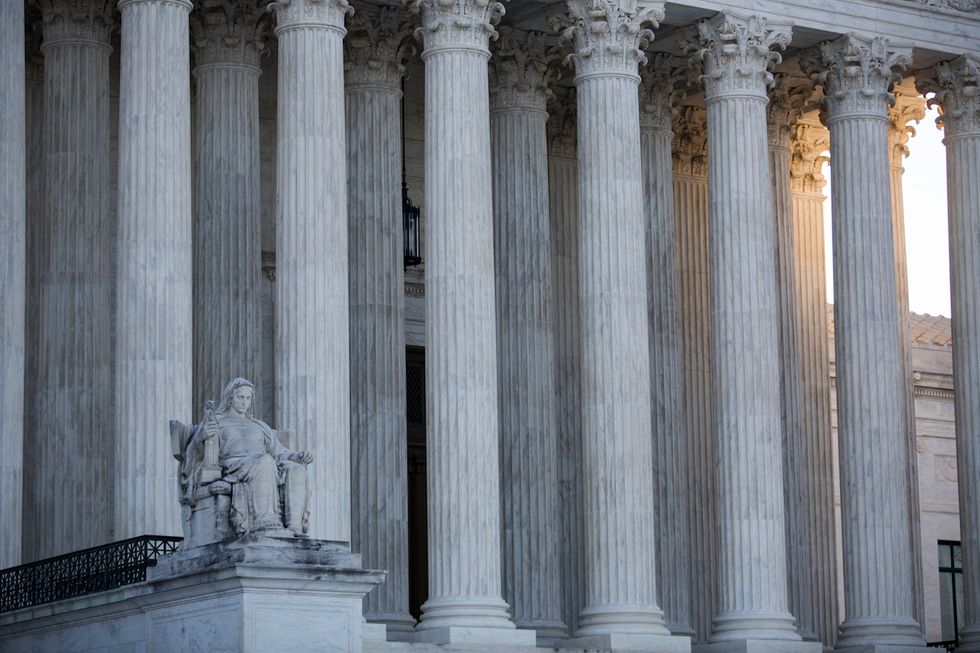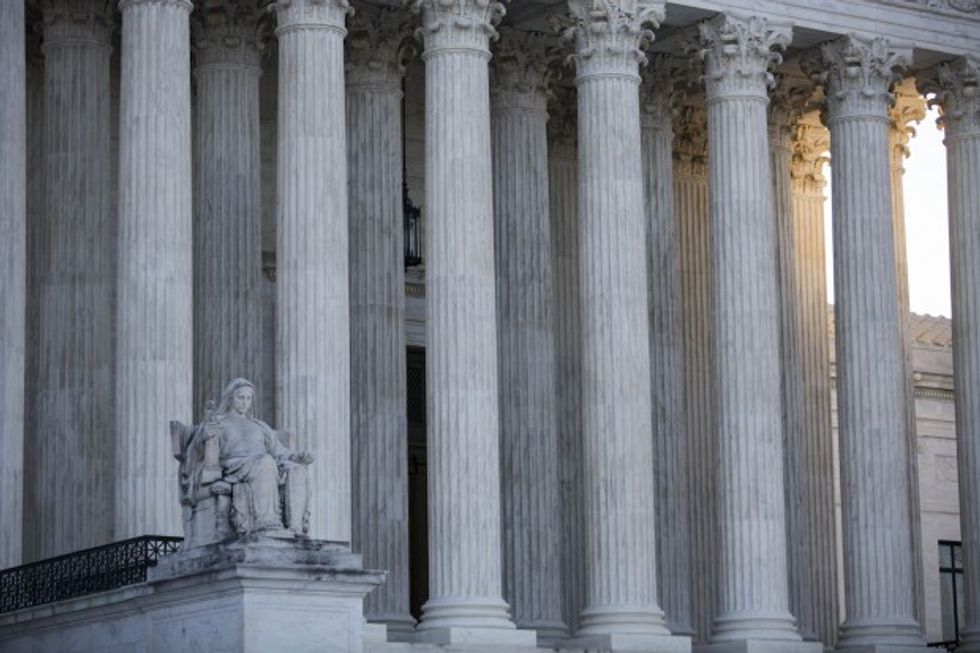
A view of the Supreme Court, January 16, 2015 in Washington, D.C. (Drew Angerer/Getty Images)

Quick history lesson: in December 2008, President George W. Bush signed a Status of Forces Agreement with Iraq which arranged for U.S. military forces to be withdrawn from that country by 2012. Remember?
And right afterwards, an Iraqi reporter threw a shoe at him (now you remember).
OK, the shoe part isn’t important. What’s important is that Bush signed this pivotal agreement in the last full calendar month of his presidency, weeks after his successor – Barack Obama – had been chosen by U.S. voters.

In other words, despite being the lamest of lame ducks – term-limited, and with a replacement already anointed – President Bush was nonetheless using his presidential powers to make decisions of enormous consequence. And he was completely within his authority to do so.
Likewise, President Barack Obama has every right to nominate a replacement for recently deceased Supreme Court Justice Antonin Scalia. There’s no “tradition” of presidents refusing to nominate Supreme Court justices in their last year in office. Actually, there are hardly any cases where Supreme Court justices needed to be replaced in a presidential election year, “lame duck” or otherwise.
Senate Majority Leader Mitch McConnell’s insistence that Scalia’s seat on the court “should not be filled until we have a new president” so that the American people can “have a voice in the selection of their next Supreme Court Justice” is utter nonsense. The American people have already done just that. Several times.
In 2012, the American people got a chance to choose which person should have the power to nominate people to the judicial branch through Jan. 20, 2017. They chose Barack Obama. And, in 2010, 2012, and 2014, the American people got a chance to choose which people would have the power to confirm or block those nominees in the Senate in 2016. By and large, they chose Republicans.
So, in terms of the U.S. Constitution, the “voice of the American people,” and “tradition,” there’s no need to put off selecting another Supreme Court Justice for eight months until Election Day, let alone 11 whole months – practically a year – until Inauguration Day.
Yes, the Supreme Court is an extremely important institution, and Obama is likely to look for a replacement with a very different judicial philosophy than Scalia’s, thereby shifting the ideology of the court. But that’s not a justification for denying Obama the powers that he was given by the voters and by the Constitution.
Seriously, are presidents not allowed to do anything in their last year in office – no nominations, no vetoes, no signing bills into law – until it’s codified (really, re-codified) by the same voters who elected them three years prior? No, of course not.
I don’t mind people picking apart the judicial nomination process. It should be fair game to ask nominees what their legal philosophy is and how they would rule on certain cases. (That is, after all, the essence of their job.) Senators should feel free to reject any nominee who refuses to answer those questions.
I’d also like it if justices were limited to a decade on the bench. After ten years, you’re out. That way, we’d get more turnover on the court, and more of that precious voter input that McConnell is so worried about.
But there’s no good reason to keep Obama from putting up a nominee to replace Scalia. Just like there’s no reason why Republicans in the Senate can’t shoot down those nominees if they don’t have an agreeable judicial philosophy.
Like it or not, that’s what they were already elected to do.
–
TheBlaze contributor channel supports an open discourse on a range of views. The opinions expressed in this channel are solely those of each individual author.